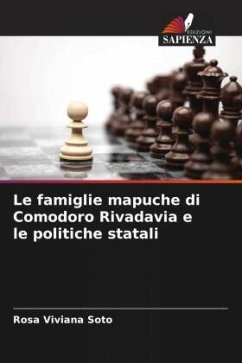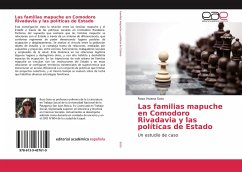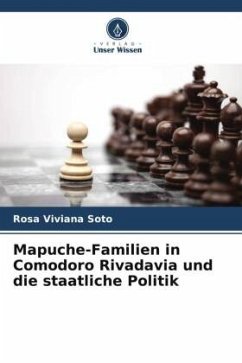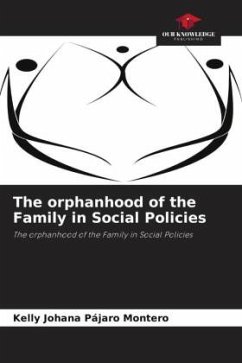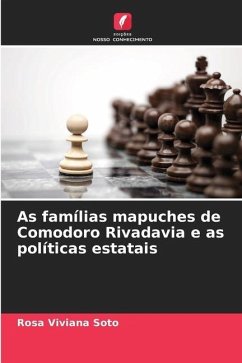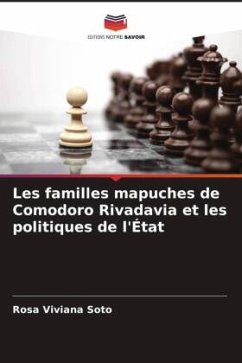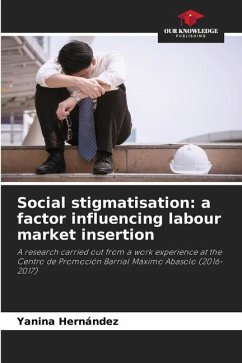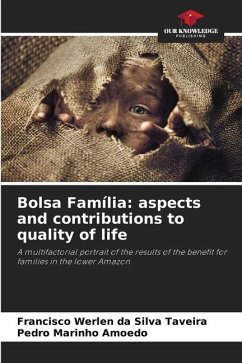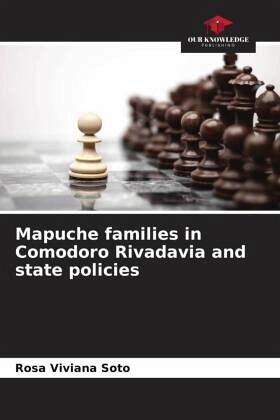
Mapuche families in Comodoro Rivadavia and state policies
Versandkostenfrei!
Versandfertig in 6-10 Tagen
47,99 €
inkl. MwSt.

PAYBACK Punkte
24 °P sammeln!
This research deals with the relationship between Mapuche families and the state through social policies in Comodoro Rivadavia. We start from the assumption that Mapuche families relate to the state through a system of differentiation, which shapes regimes of power demarcating possible places of occupation and displacement. We analyse the link between the population under study and the complex web of relationships, mediated by assumptions and prejudices, between neighbours, civil servants, social workers and health employees. This dynamic of relationships legitimises some places and delegitimi...
This research deals with the relationship between Mapuche families and the state through social policies in Comodoro Rivadavia. We start from the assumption that Mapuche families relate to the state through a system of differentiation, which shapes regimes of power demarcating possible places of occupation and displacement. We analyse the link between the population under study and the complex web of relationships, mediated by assumptions and prejudices, between neighbours, civil servants, social workers and health employees. This dynamic of relationships legitimises some places and delegitimises others, thereby enabling and disabling spaces of occupation. In the trajectories of urban life, Mapuche families are linked to state institutions, and in these relationships existential territories of survival are configured that structure differential access to a set of practices that limit collective projects, and at the same time become sites of struggle that enable diverse family strategies.



